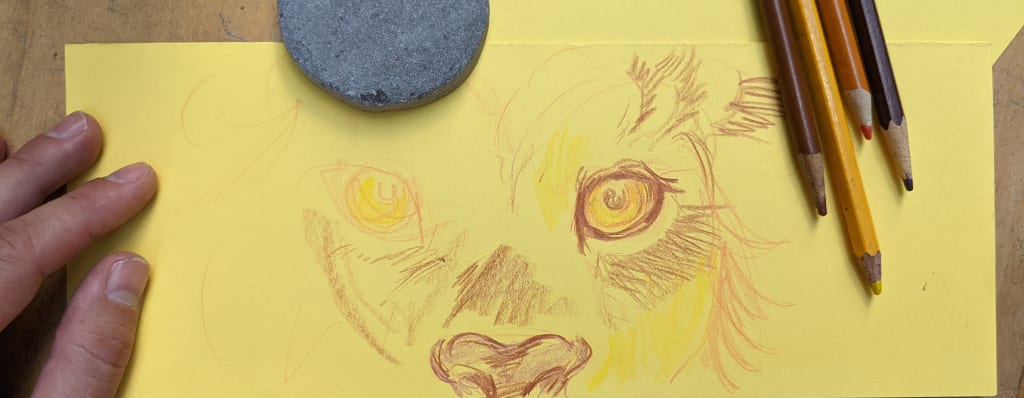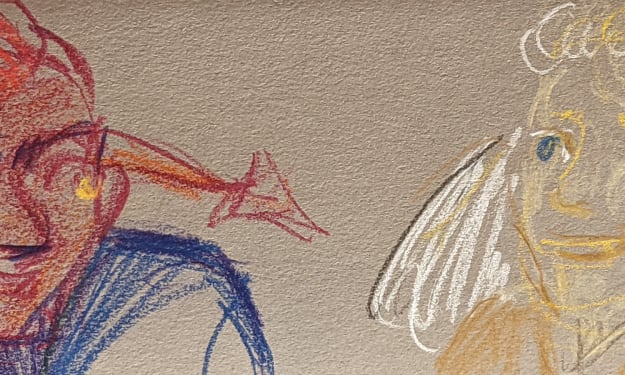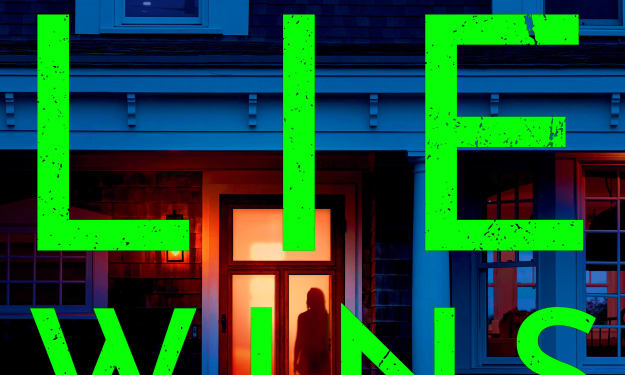
The Lion, The Witch and The Wardrobe - and actually the entire Narnia series - is one of the first full books I remember my parents reading to me, then reading and even re-reading the entire set to myself at a young age, and already thinking I must re-read again when I'd forgotten too much.
Now decades overdue for my latest re-read, I unfortunately can't interview my childhood self to remember exactly why or how it was so significant a story from my point of view back then. But I can certainly speculate, muse on how it fits with my ongoing views, and notice potential connections between what I had read and the ways I write and approach creativity now.
Perhaps it represents a critical element of what books have always been for me: an escape from everyday reality into an exciting world of imagination. The anticipation that just behind an unknown entryway or ordinary object could be waiting an extraordinary adventure. To see a door, and daydream where it leads, to mentally picture and elaborate what tales it can tell.
Yet within every fantastical story that entertains, to be truly worthwhile, there is a deeper meaning too. Each book holds a lesson you can walk away with, a raison d'etre. Why is this story being told? It is well known that the lion Aslan who is mysterious and wild, yet so immeasurably good and kind, who sacrifices himself for the sake of these children and the land of Narnia, yet ultimately cannot be contained by mere death... is an allegory for Jesus. At various points in their encounters with other Narnians, the four children are deceived or helped or given special responsibilities, and we witness the resulting consequences of their actions. Their beloved magical world is full of surprises and treacheries, and hope... as is ours.
As a creator, I delight in coming up with amusingly dramatic situations and delicious plot twists, imagine my characters as real(ish) people talking to and playing off each other, add in layers and easter-egg extras, bend tropes to both fulfill/subvert them. But at some point I have to ask myself why I keep going. That's when I'll realize my story is really about embracing each other's differences, finding your identity while equipping yourself to help those around you and fight injustice, redefining expectations, or having the boldness to dream big but not being so ambitious that you lose your heart.
At times, my Christian faith has even shaped major plot points. A flippant character who's secretly honorable steps up when it matters. He goes far out of his way to provide resources and safety to desperate refugees at his own personal expense -- by letting them escape and continue living on his spaceship while their planet is in crisis. He convinces peers to do the same. A young superhero asks an older hero about serious wounds inflicted by a villain years ago, but it's actually a conversation about radical forgiveness. Occasionally, someone is overtly seeking spiritual guidance. Or glorifying God for their transformative change of heart, that led them to trade in the harmful resentment they were harboring, for a constructive approach to caring and love. By then end, welcoming a former enemy into their home.
I suspect it was early exposure to authors like The Chronicles of Narnia's C.S. Lewis, and Madeleine L'Engle (famous for A Wrinkle In Time, among her many writings) that showed me how an author could tell a riveting tale, gain mainstream success, yet be grounded in and respected for their faith. Both were known for noteworthy works of fiction, yet also for treatises on the essential meaning of Christianity as a whole, its influence on their own creative processes, and sharing very personal and tragic true-to-life stories.
Eventually, I realized that fantasy stories are not simply a means to take a vacation from "ordinary" life. Instead, they are often the safest space to contend with life's very real challenges. Like parables, the telling reveals a lesson and communicates a philosophy, often more poignantly than if the words were plainly laid out. You come to sympathize and understand the true meaning by syncing with their wavelength. You know it in your heart.
My own writings-in-progress tend to pull inspiration and tonal cues from popular media, so may not be viewed as classic literature in the same way. However, sometimes it is these fun and silly-seeming ones that can most effectively get away with engaging us on the deepest questions about life. When you see the story as being about someone else, or a different world, but then you start to draw the parallels, and it can motivate you to make a difference in yours. Even if with a seemingly small moment of kindness.
Is it too meta for me to point out that upon having such a meaningful experience with stories, the impactful reaction it sets off in me is then to tell more stories, including this story about reading and telling stories?
About the Creator
Ellen Stedfeld
Perpetually immersed in drawing, illustration, and creative experiments, at live events and @EllesaurArts.com
Community arts in NYC/Queens -- LIC Arts Open festival May 15-19th 2024
Love participating in challenges to motivate new work!
Reader insights
Nice work
Very well written. Keep up the good work!
Top insights
Compelling and original writing
Creative use of language & vocab
Easy to read and follow
Well-structured & engaging content
Eye opening
Niche topic & fresh perspectives
Heartfelt and relatable
The story invoked strong personal emotions
On-point and relevant
Writing reflected the title & theme






Comments (2)
I completely agree with your point about the ordinary back of the wardrobe being so attractive to the childhood reader, that you could find another world in your own house. And that’s an excellent point about how we initially read them to escape from reality, but as we grow older we see more of the real world in them. “ Like parables, the telling reveals a lesson and communicates a philosophy, often more poignantly than if the words were plainly laid out”. Well-said! I grew up on the Narnia books, and know that even if I wasn’t explicitly aware of some of the messages, that I was being shown a way to navigate the world, how to treat others, and how to have faith in times of trial. This was a lovely read Ellen🤗
great work why cant you join my friends and read what I have just prepared for you